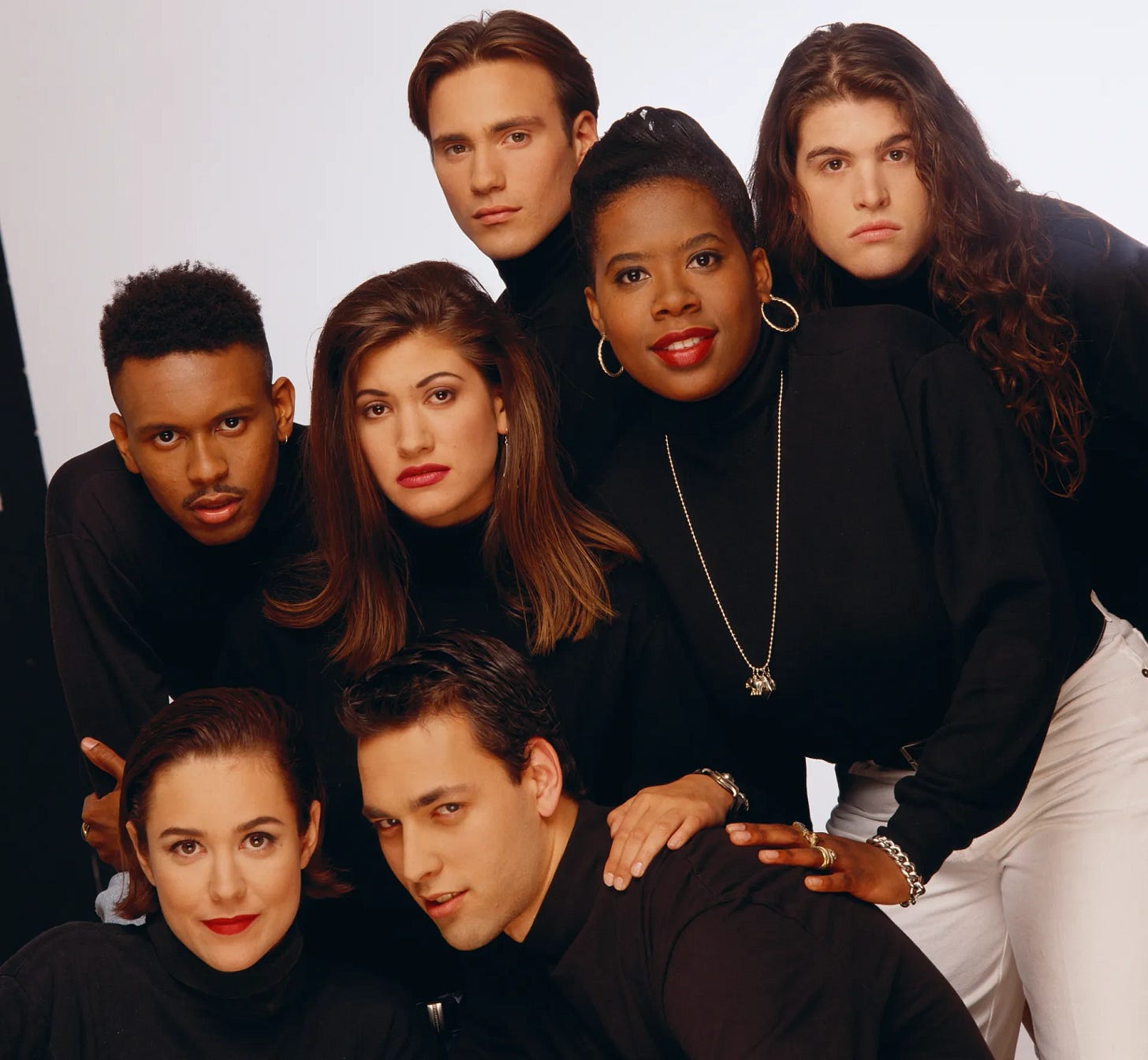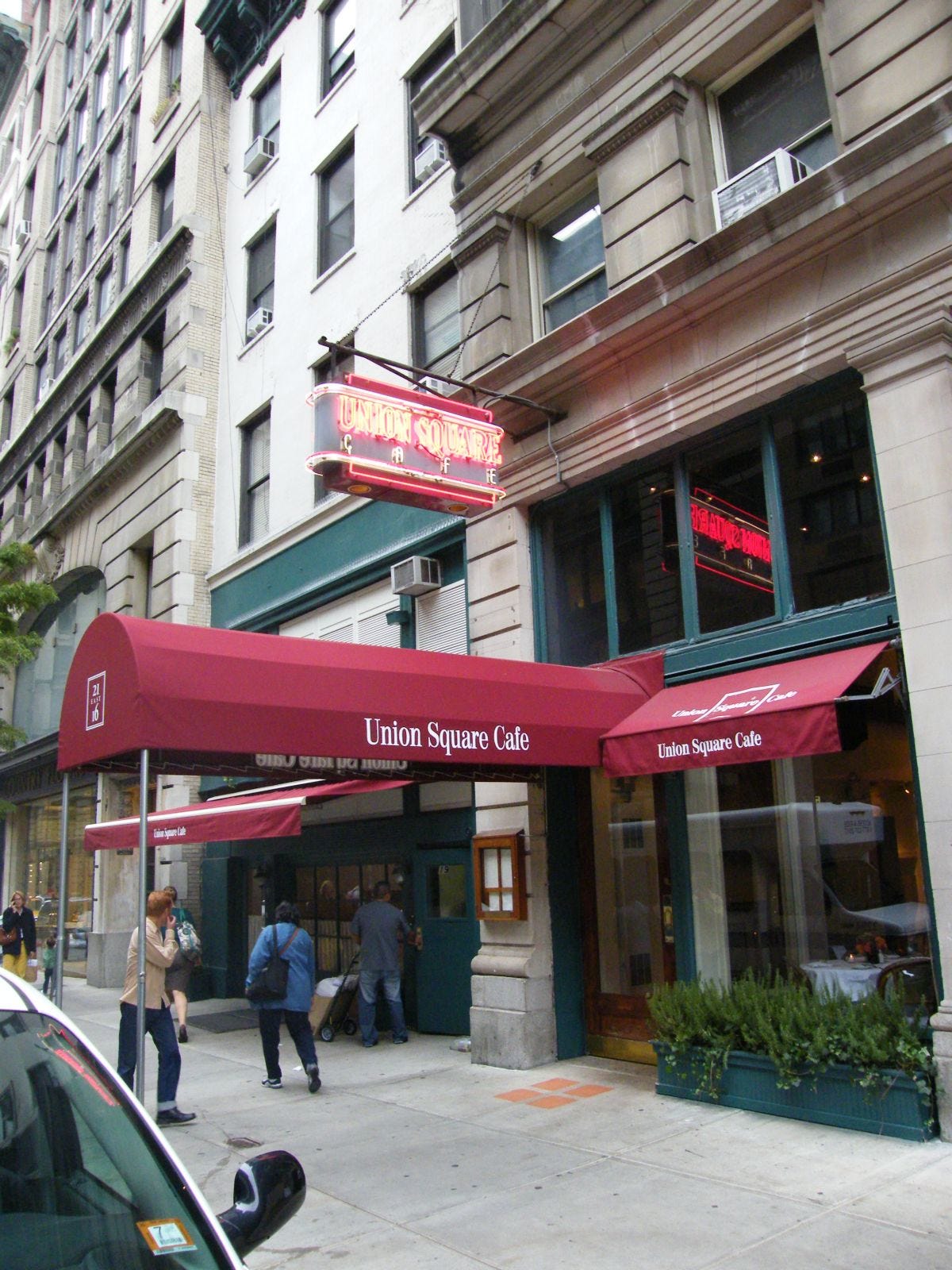The New York Times Doesn't Know What to Think Anymore
New York's Mayoral Election and Mass Confusion in Liberal America
The New York Times has more subscribers in California than the Los Angeles Times, so it’s evidently still my local paper. When the Times last year announced without further elaboration that they would no longer endorse candidates in local races in New York, it was only logical to assume that the diminished coverage was collateral damage in the paper’s ongoing transformation into a fully national publication, as relevant to readers in Los Angeles as New York.
Their editorial on next week’s Democratic primary, “Our Advice to Voters in a Vexing Race for Mayor,” gives a different explanation.
Eleven candidates are competing for the Democratic nomination, and many New Yorkers are understandably disappointed by the field. It lacks any candidate who seems likely to be the city’s next great mayor. For that reason, we are not endorsing a candidate.
I don’t buy it. The Times is not avoiding endorsing a candidate because the options are so bad, an unfair accusation against a standard slate of New York Democrats. Instead, the Times has found itself in the same boat as the rest of the mainstream Democratic establishment. Other than a certainty that Donald Trump is very bad and very dangerous, they don’t know what liberals are supposed to stand for right now. It’s hard to pick a candidate when you don’t know what you believe.
Like every other gray-diaper baby in New York, I was raised on the New York Times. My crib was lined with the Metro section. I learned 1930s cultural references from doing the crossword puzzle every day. I’d get SportsMonday sent to me at sleepaway camp. I’ve been reading the paper for as long as I’ve been able to read.
So it wasn’t a surprise to me that the Times’ abandonment of local endorsements caused a political earthquake among liberal New Yorkers on par perhaps only with the introduction of women’s suffrage to mayoral elections in 1921, when the paper’s editorial board was already lamenting that “the women, alas that it should have to be said, did not purify the city by their votes.”
I wouldn’t put the Times’ shift in policy into the same category as the laughable attempts of my actual local paper, the Los Angeles Times, to appear unbiased and instill confidence in readers by treating editorial content like a carnival game, using AI to assign a bias ranking to any piece that expresses any thought that can be construed as an opinion. At the New York Times, the editorial page’s tortured coverage of the mayoral primary reveals a different sort of crisis.
Democratic primaries in overwhelmingly Democratic cities like New York take place in a world without Republicans. They allow Democrats—and liberal-leaning editorial pages—to engage in a valuable thought experiment. If Republicans didn’t exist to oppose us, what kind of policy agenda would we pursue? It’s arguably the most pressing question facing Democrats, not just in the five boroughs, but everywhere. And the Times has no idea how to answer it.
The process by which the New York Times avoided making an endorsement is as revealing as the substance of their argument against the candidates. They first published a feature called “The Choice,” a well-meaning but ultimately ineffective effort to platform a diversity of voices by convening a panel of fifteen strangers picked to share their opinions on an election and find out what happens when people stop being polite and start getting real.
The anonymous authority of an editorial board issuing pronouncements from on high may feel out of step with current Democratic ideas about inclusion and grassroots organization. But a non-representative sample of anecdotal opinions feels less like an improvement than an abdication. The editors should have realized their project was on shaky ground when they presented the verdict of the “range of New Yorkers” they’d assembled by writing, “Danny Meyer, the [centimillionaire] restaurateur, spoke for others in our group…”
Just a day after The Choice appeared in the paper’s Sunday print edition, which I still receive at my front door and read in its entirety because, there’s the week, there’s the weekend, and there’s the weekender, the editorial board issued its non-endorsement endorsement, a window into the torment of mainstream liberal institutions.
The tone is evergreen Times, if slightly divorced from reality. As quoted above, the Times expertly concern-trolls that “many New Yorkers are understandably disappointed” in the candidates. Yet turnout in early voting has more than doubled since 2021, so voters must not be completely heartbroken over their options.
Dismay in electoral politics has been a consistent position for the Times. The election-day editorial from way back in 1921, the year when newly-enfranchised women failed to redeem New York and deliver victory to the Times’ preferred candidate, scolded its readers that “it may be too late for chiding and chastisement, but the people of the city have been strangely, culpably apathetic about the Mayoralty election.” Nobody is ever good enough for the Times.
If dissatisfaction with the available candidates were enough of a reason to withhold editorial support, the Times would have dropped out of the local endorsement business a hundred years ago. Are we supposed to believe that this year’s crop of candidates is so uniquely unqualified that the Times cannot possibly weigh in?
This election’s slate includes the current and previous city comptroller, the speaker of the City Council, and an up-and-coming state legislator. In 2013, the top four finishers in the Democratic primary were, at the time, the current and previous city comptroller, the speaker of the City Council, and the public advocate. Here’s what the Times said before that primary.
A common complaint is that this year’s candidates look small, like dots on the slopes of Mount Bloomberg. But that isn’t fair; all but a few are solid public servants running substantive campaigns.
It took me ten seconds to find this. Do they not have Google on 40th Street?
To the Times, the real problem for Democrats is “the party’s leftward shift of the late 2010s,” which in New York, they hang around the neck of former Mayor Bill de Blasio, claiming that his “main legacy is to have contributed to the city’s recent decline.” It was a different story in 2017, when the Times endorsed de Blasio for re-election.
When Bill de Blasio took office in 2014 as the most left-wing mayor in New York’s modern history, skeptics forecast disaster…None of those dire warnings became reality.
The dramatic “decline” in New York must have taken place in de Blasio’s second term, then, right? Except that wasn’t precisely the Times’ position in 2021, when they endorsed Kathryn Garcia, whose main qualification was serving is a “go-to problem solver” in the administration of…Bill de Blasio?
Without litigating any of their specific claims, it seems likely that the Times’ changed perspective on de Blasio is less about de Blasio than their own remorse and regret for embracing progressive policies—hardly an uncommon sentiment among establishment Democrats today. What the Times would prefer instead is “a more effective and thoughtful liberal governance, in which city leaders use empirical evidence and effective management to achieve results.” Their argument in not endorsing any candidate is that none come close to meeting this technocratic standard. But the bar feels suspiciously higher than usual this time around.
This is where the Times begins to find itself in an unsustainable and incoherent position. On the one hand, they know with absolute certainty that “progressive city management has failed.” On the other, they have a sneaking suspicion that the experienced liberal public servants they’ve supported forever are no longer capable of galvanizing the progressive voters who make up ever-larger portions of the Democratic electorate. (Bad news for Comptroller Brad Lander, unafraid to rumble with ICE but unable to win the Times’ endorsement because he “exudes competence if not inspiration.”)
The progressives are too progressive to govern but the liberals aren’t progressive enough to win. So what’s the answer? Remarkably, the Times says it’s the moderates.
The only affirmative recommendation offered by the Times is to not rank the primary’s most progressive candidate, Zohran Mamdani, at all. Among all of the candidates, Mamdani alone is so objectionable that Democratic voters should leave nothing to chance in preventing his nomination. Given a choice between a young progressive and an aging moderate whom just four years ago the Times urged to resign over “credible accusations” of sexual misconduct “that can’t be looked past,” voters should choose the moderate. The merits of this conclusion aside, the circuitous route by which it was reached can hardly be called logically coherent, or more bluntly, principled.
Perhaps the Times hopes that Andrew Cuomo will beat back Zohran Mamdani without anybody they know or love having to sully their hands by voting for the ex-governor. In that desire, they may be reflecting the sentiments of their median reader. My sample size is larger than the editorial board but drawn from a similar universe. I’ve spoken to my own “range of New Yorkers” who want Mamdani to lose to Cuomo without actually having to vote for Cuomo themselves so they’re quietly hoping that other voters will do their dirty work for them.
I don’t find this to be a particularly defensible position, especially with ranked choice voting. My last newsletter made the case for Adrienne Adams, but if you’re “sick of choosing between the unqualified and unconscionable,” as one of the savvier members of my own personal editorial panel put it, you could do worse than Brad Lander, or, for that matter, Scott Stringer or Zellnor Myrie.
It’s important to make the distinction between the Times editorial board and the paper’s individual opinion writers. Just today, the Times published a column by Ezra Klein, a thoughtful and compelling case for Brad Lander. It’s the knowledgeable, substantive, in-depth analysis of the election and its candidates one might have once expected from the editorial board itself. More than anyone else at the Times, Klein has often recognized that while Democrats everywhere are desperate for a return to power anywhere, defining ourselves entirely by what we’re against—Donald Trump is bad but so is runaway progressivism—is a path to nowhere.
The New York Times may not have to make its own choice anymore but the rest of us do. We’re going to have to vote our way out of this mess, starting with Democrats in often-insular New York City. Local endorsements aren’t going to show Democrats the way forward but local elections might.






